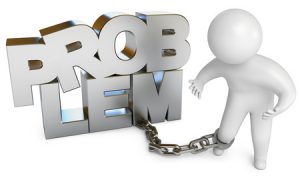Defeat the Stress of the Mess
Have you ever noticed that when your room or desk or kitchen becomes messy or cluttered you begin to feel overwhelmed? I know I do. When my room begins to get cluttered, my mind begins to feel cluttered and a little more anxious. When the sink becomes filled with clutter (dirty dishes), I feel stressed. I know this isn’t true for everyone (and it’s not necessarily true for the edges of my desc). But it’s true for many…and it may be true for someone in your family. Why? At least one study suggest that many people experience “cognitive overload” in the midst of a cluttered environment. The clutter distracts their focus and attention, overwhelms them with stimuli, while they try to prioritize the information around them.
On the positive side, clutter has been linked with greater creativity (thus my desk—that’s my rational and I’m sticking with it!). Still, on the negative side, clutter has also been linked with eating a less healthy diet and less effective parenting which can potentially contribute to more behavioral problems. Clutter can also contribute to an increase in anxiety.
If clutter increases your stress or the stress of someone in your family, what can you do? The simple answer is to clear the clutter. But, in today’s busy and cluttered world, that can prove challenging at times. So here are some tips to help you declutter and “free your mind” from the stress of the mess, the tyranny of clutter.
- Declutter once a week. Set aside a specific time each week to clean up and declutter. Play some music in the background while you do. If you’d prefer, listen to a podcast while you clean your area. Recognize that as you reduce the distractions associated with clutter, you ease your mental load and free yourself to focus mentally and get more done.
- Establish “micro-decluttering times.” If you struggle to set an extended period once a week, try cleaning for 5-10 minutes each day.
- Bypass the clutter altogether. Develop the habit of “handling things (like the mail) once.” As soon as you get the mail, look at it. Decide what is necessary. If it’s junk mail, toss it right then and there. If it’s a bill, put it in a file for bills to be paid. The same principle can apply to dishes. After you eat, wash the plates and put them away…or rinse the and put them in the dishwasher. You get the idea. Don’t leave stuff laying around until you get to it. “Handle it once” and put it in its appropriate place.
- Define the clutter. Recognize that not all clutter is bad clutter. Perhaps you or a family member have certain areas of clutter that aids your “creative side” (my desk—I told you I’m sticking with it.) Discuss this as a family and define what area can have clutter, the boundaries of how far that clutter can extend, and any other limit on the clutter.
- Don’t go overboard. Remember, clutter happens. No need for perfectionism. In fact, a perfectionistic worry about clutter can prove as harmful as clutter for a person’s mental health. Do the best you can. Work together.
Don’t let the tyranny of clutter overwhelm you. Defeat the stress of the mess by implementing these 5 actions. Not only will you minimize the clutter in your home, but you will also maximize your cognitive space for giving undistracted attention to your family. Undistracted attention to my family…that sounds like a great reward.

-0 Comment-